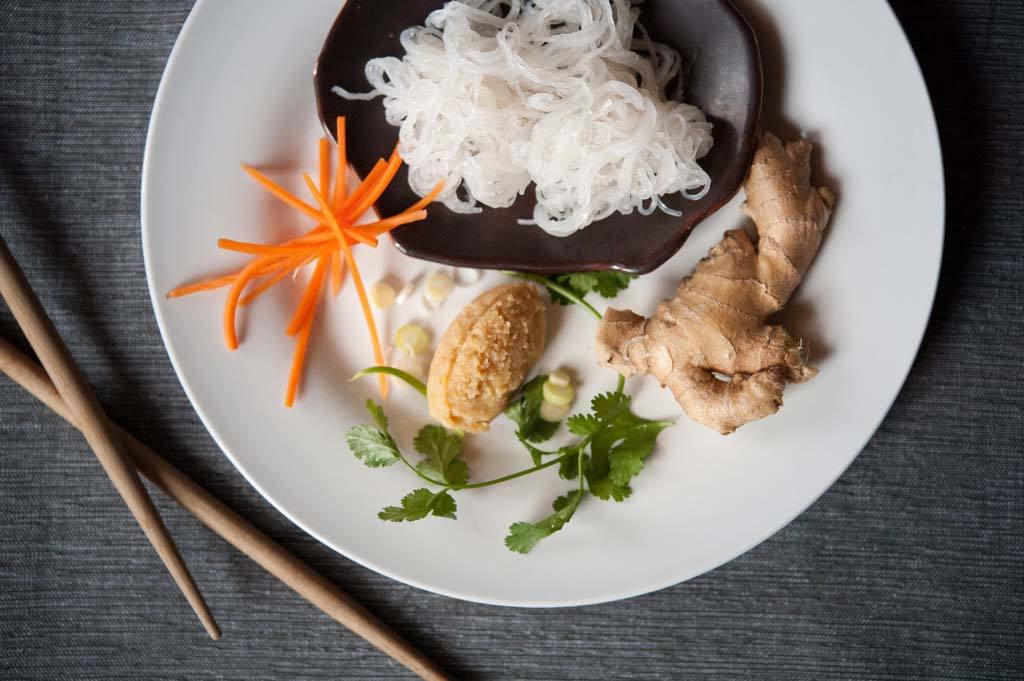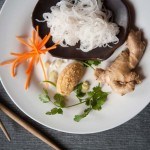Finding myself in India that summer should have led to a culinary adventure of significant proportions, but I had a young and naive palate. I lived on rice, dal, and pomegranates, and turned away from the King of Fruits, declining the voluptuous mango offered to me one sultry afternoon on the veranda of an elegant widow’s home.
Why a mango seemed so foreboding at the time, I can’t tell you, but it did. Still propelled by childhood eating habits, I ate timidly, only reluctantly trying the unfamiliar. Although I ate papaya with languid pleasure, something about a mango disturbed me. I watched suspiciously as a companion squeezed the warm green and pink skin, poked a hole in it, and then sucked out the slippery pulp, much as I had done with oranges as a child.
Early one morning, I waited at the Poona hotel for an Indian friend who would take me to the zoo. I arrived early, having left the village of Ahmednager, where I’d been living for two months, before dawn. Tea in the dining room passed some time, but I had a long wait until my friend arrived.
Eventually, I discovered a teletype machine, and stood there in the thick Indian dawn reading the first news of home I’d seen in weeks. I can still see the low-hanging clouds, the blue and gold sari I wore, and hear the low murmur of voices speaking Hindi and Gujarati. But what is most clearly in focus is the clacking sound of the teletype as it tapped out those remarkable words: “President Richard Nixon resigns today at noon . . .”
It was strange to be so far from home, unable to talk to a friend, pick up a phone, turn on the radio. I received no further news until I arrived in New York a week later, but I did, shortly after reading that simple, cataclysmic line, accept my first mango.
I had no choice but to eat it politely and smile, which I did. Much to my surprise, my forced grin, poised and ready, instantly dissolved into a smile of delight.
Upon his arrival, my new Indian friend handed me the biggest mango I’d yet seen. We went to the zoo, a very strange place by western standards, and after walking a long time, my friend suggested a rest on a nearby bench. He took the mango from me, skillfully peeled and sliced it, and handed me some. I had no choice but to eat it politely and smile, which I did. Much to my surprise, my forced grin, poised and ready, instantly dissolved into a smile of delight. The warm, delicate flesh of the mango was redolent with the most delicious, intoxicating perfume. This must be how bees and bats feel when they nuzzle into a flower to drink its nectar, I thought, this is exquisite.
So there I was sitting on a bench in the strange Poona zoo, surrendering to a mango and wondering what was happening to my country. And this is why, whenever I think of mangos or taste them or cook with them, I think of Richard Nixon, one of those strange, fixed-in-time connections we inevitably gather. Before I began the long journey home, I stopped at the bazaar for some mangos of my own, which I carefully hoarded for my last few days, saving the best until the day of my departure. As I headed to the Bombay airport, I realized that I’d left that last perfect mango sitting on the nightstand in my hotel room, where in my mind it still glows and shimmers, a delicious talisman of transformation. From that moment forward, I have been an eager culinary adventurer.






